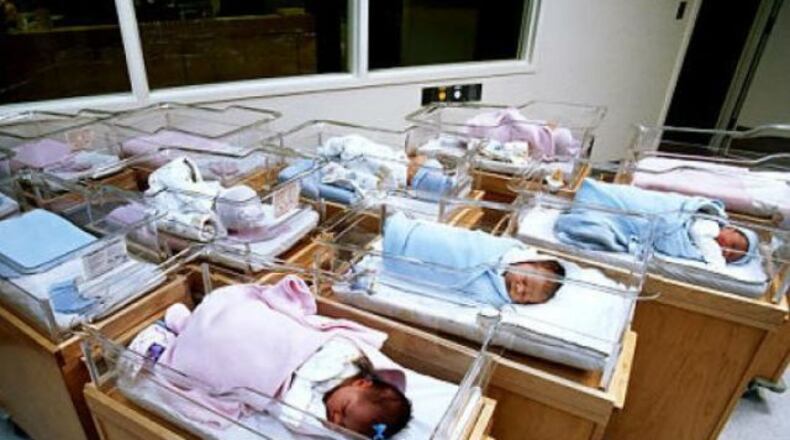Erick Erickson, the host of this week's RedState gathering here in Atlanta, was asked whether the culture wars are now over and the outcome pretty much settled, a notion that he defiantly rejected:
"And I don't mean to be flippant by that statement. But if you look at the demographic trends in this country, over the next 50 years the country will be filled with young Christian Hispanic families who listen to country music. Demographically, they're our people."
I confess that I find the concept of a breeding program as a means of winning a long-term political argument rather ... amusing. Erickson puts a lot of faith in the idea that culturally conservative parents will produce reliably conservative, cookie-cutter offspring much like themselves, and that will be enough to stem the tide. But nothing in the data or human nature suggests that is true.
For instance, the most recent Fox News poll reports that among Americans aged 55 and older, Barack Obama remains a pretty unpopular figure. Fifty-three percent of older Americans still disapprove of the president's job performance, while just 41 percent approve.
But what about their grown children? Do Americans 35 and younger believe as their parents do? Are they mere echoes of those who raised them?
They are not. Among younger Americans, Obama's job approval rating is almost twice as high as his disapproval rating, which is pretty remarkable. Those younger Americans look at the world differently than their parents do, and they clearly reach different conclusions. (The trend is even more pronounced among Latino Americans.
, Democrats outdrew Republicans 68 percent to 28 percent among Latinos under 30).
Now let's look at generational attitudes toward same-sex marriage, the single most polarizing issue of recent culture wars. Even now, older Americans tend to oppose the idea, but their grown children have used the minds that the good Lord gave them, so to speak, and have come to a very different conclusion:
Finally, it's important to point out that Erickson made his comments in Nashville at an event sponsored by the Southern Baptist Convention’s Ethics & Religious Liberty Commission. If it's realistic to expect that Southern Baptists and other culturally conservative groups will "breed (opponents) out of existence demographically," as Erickson claims to believe, then the SBC will have to play a central role in that effort.
And how's it going so far?
- Last year, by the SBC's own count, the number of baptisms performed by its churches fell for the third consecutive year.
- Since 2003, the population of the United States has grown by more than 30 million. In that same time frame, SBC membership has declined by 800,000.
- Last year alone, membership in the SBC fell by more than 236,000, the largest single decline since 1881.
- SBC membership is now at its lowest level since 1993, with every sign that it will continue to fall.
Erickson bases his argument on the belief that Southern Baptists and other like-minded groups tend to have larger families, and I think that's probably true. But if we accept that proposition, how then do you explain the SBC's ongoing decline in membership? If more people are being born into the denomination, yet the denomination is shrinking, doesn't that suggest that young people are rejecting it and looking elsewhere?
And doesn't that suggest that message and relevance play much larger roles than "breeding success," to borrow Erickson's coarse concept? I understand that's a difficult question, not least because it suggests that making more babies won't be enough, that change will be required in a group for whom change is anathema. But I don't know what other conclusion to draw.
Russell Moore, the head of the SBC's Ethics and Religious Liberty Commission and the man who asked Erickson the culture war question, understands that reality. He now argues that with its insistence on fighting the culture war, and in its close identification with the Republican Party and partisan politics, the Southern Baptist denomination lost its way. It became too much of the world, so to speak, and is paying the price.
"There was a larger mentality that came along with the last generation of evangelical political activism that assumed that we represent the real America in ways that turned out not only not to be true, but turned out to be damaging to the larger mission of the church," as Moore told The Atlantic in a recent interview.
At the very least, Moore's approach reflects a necessary introspection and a willingness to rethink. As he writes in his new book, “The loudest voices against the hounding and intimidation of gay and lesbian persons around the world should be from the wing of the church most committed to a biblical Christian sexual ethic.”
About the Author
Keep Reading
The Latest
Featured



